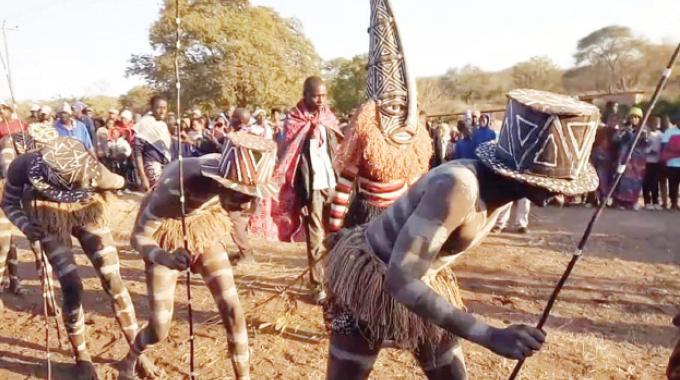News / National
Luvale tribe resumes initiation ceremony
05 Sep 2024 at 06:10hrs |
1 Views

The Luvale tribe of Victoria Falls revived their traditional mukanda initiation ceremony, last held in 2014, with 30 boys aged 6 to 15 undergoing the cultural rite of passage.
The ceremony, which involves circumcision and three months of cultural training in the bush, was interrupted due to the conversion of the initiation site into residential land. This year, circumcisions were performed at Victoria Falls Hospital before the boys entered the bush for training.
The celebration marked the boys' graduation from juveniles (tutanda) to young men (bakwende) with a vibrant carnival atmosphere, including song and dance.
The boys, dressed in traditional attire with their faces hidden, were introduced to the community through dances like the makichi. The event was attended by Luvale kinsmen from Zambia, highlighting the tribe's deep roots in Zambia, Congo, and the DRC.
The mukanda ceremony, closely guarded from outsiders, focused on teaching lifelong skills, cultural practices, and ubuntu (humanity).
Women played a key role by preparing meals for the boys, while elders like Ms Mariya Phiri emphasized the cultural significance and the importance of preserving these traditions for future generations.
The ceremony, which involves circumcision and three months of cultural training in the bush, was interrupted due to the conversion of the initiation site into residential land. This year, circumcisions were performed at Victoria Falls Hospital before the boys entered the bush for training.
The celebration marked the boys' graduation from juveniles (tutanda) to young men (bakwende) with a vibrant carnival atmosphere, including song and dance.
The boys, dressed in traditional attire with their faces hidden, were introduced to the community through dances like the makichi. The event was attended by Luvale kinsmen from Zambia, highlighting the tribe's deep roots in Zambia, Congo, and the DRC.
The mukanda ceremony, closely guarded from outsiders, focused on teaching lifelong skills, cultural practices, and ubuntu (humanity).
Women played a key role by preparing meals for the boys, while elders like Ms Mariya Phiri emphasized the cultural significance and the importance of preserving these traditions for future generations.
Source - The Chronicle
Join the discussion
Loading comments…










